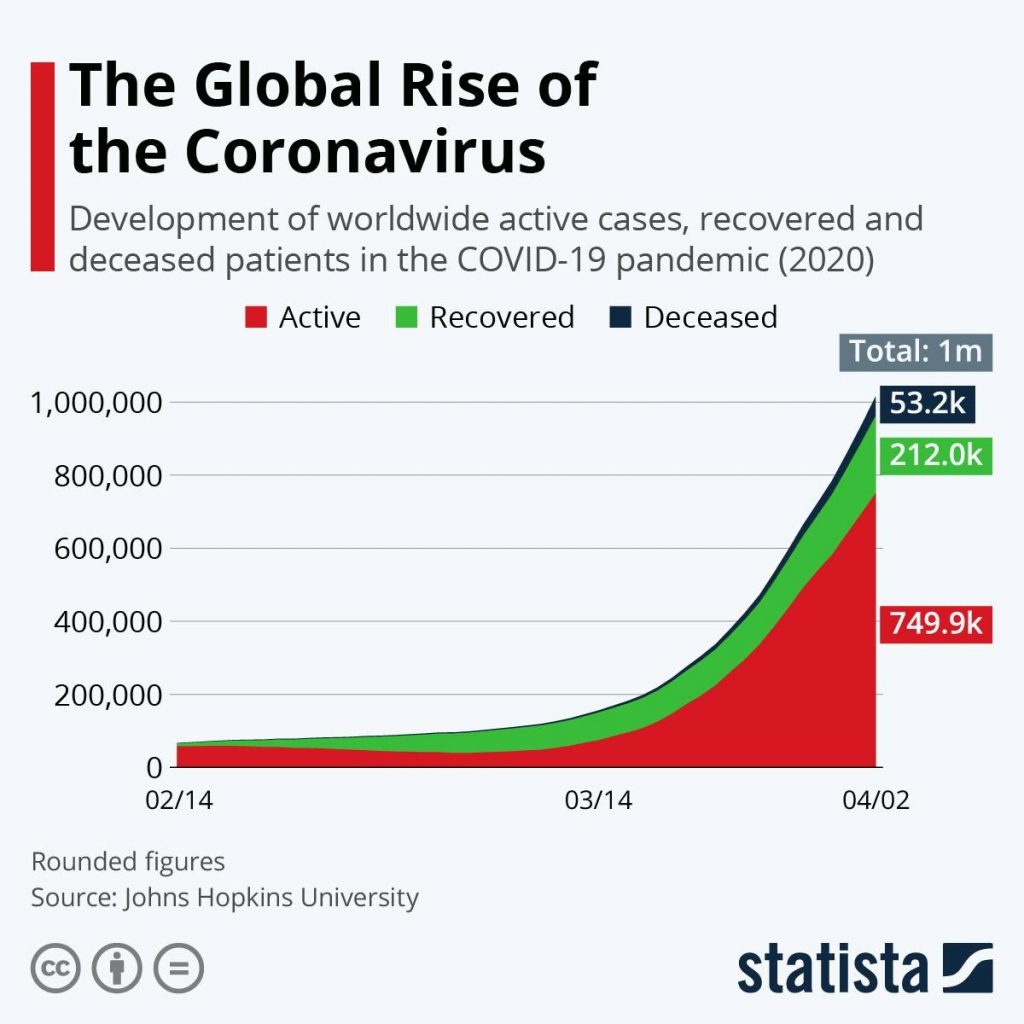The global incidence of coronavirus infection is soaring daily as new cases emerge. The figures in the chart below confirms the rise of coronavirus cases within a short timeline.

The Center for Disease Control and other public health organizations have recommended prevention measures such as frequent hand washing, social distancing and isolation of infected cases to reduce the virus spread.
Patients who have chronic medical conditions that require frequent health checks are at increased risk if they visit hospitals at this time. Therefore, it is imperative to use virtual health care through telehealth technology to screen patients remotely by prioritizing hospital care for patients who are acutely ill.
How does telemedicine reduce the risk of coronavirus infection? Can telehealth be used to monitor patients who have coronavirus infection?
Here’s how telemedicine prevents the spread of COVID-19 virus and its benefits for coronavirus infected people.
How can telemedicine protect against coronavirus?
Telemedicine protects both patients and health professionals from contracting coronavirus infection. Telemedicine softwares enable patients who are not critically ill to communicate via chat, audio or video call with a virtual physician about their symptoms instead of presenting physically to a hospital. The physician decides based on the severity of the symptoms if the patient needs hospital based treatment or not.
On the other hand, physicians can remotely make a provisional diagnosis of coronavirus infection in patients who have both the risk and symptom profile. The virtual doctor is expected to alert the hospital receiving the suspected case of coronavirus infection before the patient reaches the hospital.
With this pre-information, the health professionals attending to the patient would take extra precautions thereby protecting themselves against contracting the Covid-19 virus.
The US-based startup Curatess is a HIPAA-compliant telehealth platform that uses an FDA-approved stethoscope to listen to patients’ respiratory and cardiac sounds.
British company Welldoing connects you with online therapists who can help with coronavirus-related stress and anxiety.
Companies like Carbon Health are already working on at-home tests for coronavirus.
The NHS in the UK announced that their GP appointment will be done via phone or video calls. Virtual doctors who can be accessed on demand are becoming increasingly popular and this is likely to be the case even when the coronavirus impact subsides.
Benefits of telehealth for COVID-19 patients
In the absence of chronic medical conditions and mild symptoms, a few cases of Covid-19 infected patients can receive home treatment. Also, doctors can virtually assess and monitor these infected patients to track the disease progression as well as to ascertain those that need urgent hospital care.
In conclusion, telemedicine technology promotes virtual health care that curtails the transmission of coronavirus infection among ill patients and health care workers. Also, patients with mild corona virus infection can receive counsel and care remotely through a team of dedicated virtual health professionals.
